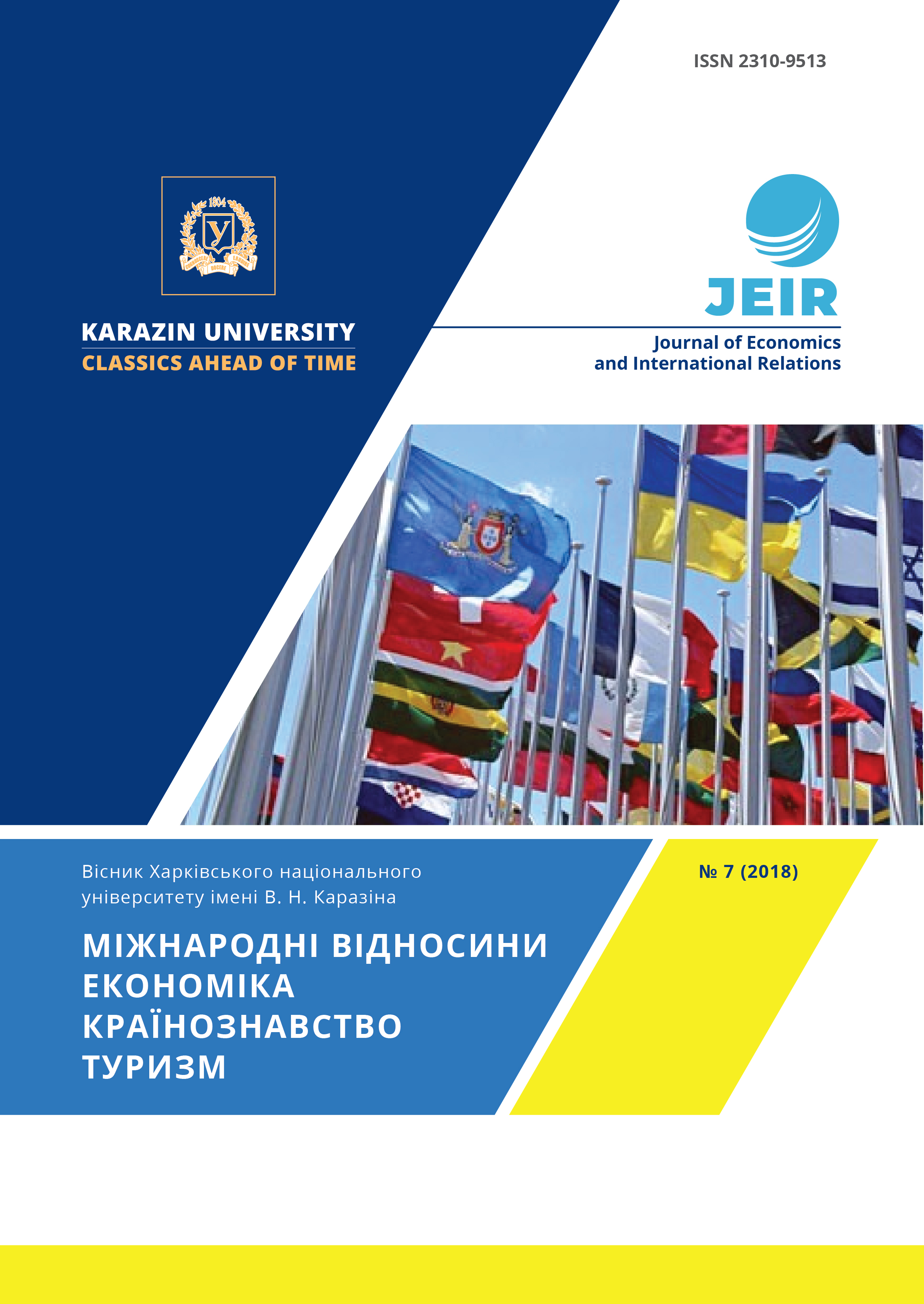Causes of modern dіsintegration processes: EU experience
Abstract
The article analyzes the main causes of modern disintegration processes in a globalized world. Integration and its opposite - deintegration - coexist in the modern world simultaneously or change each other at each stage of development of countries and integration associations. If integration allows the benefits of combining disparate parts into a single whole from the complementarity of the economies of the participating countries, then disintegration weakens their mutual dependence. There are different types and manifestations of disintegration, due to internal and external causes.
According to the results of a poll that funded by the European Commission five of the most important problems facing the EU countries in the process of further integration were identified in the year 2016.
The article concludes that these problems today are the main reasons for the contradictions between decisions of national and supranational institutions in the integration union, the loss of confidence in the latter from the EU population, which does not feel a sense of inclusion in decision making and the ability to influence the activities of supranational authoritiesDownloads
References
Трансформація міжнародних економічних відносин в епоху глобалізації: монографія / За редакцією А. П. Голікова, О. А. Довгаль. – Х. : ХНУ імені В. Н. Каразіна, 2015. – С. 40-43.
Vollaard H. A. Theory of European disintegration URL: http://www.jhubc.it/ecpr-riga/virtualpaperroom/017 (Last accessed: 1.12.2017).
Köllen T. European Disintegration: Tendencies of Renationalization within the European Union and its Impact on the Common Labor Market and EU Consumer Markets. The international journal of diversity in organizations, communities and nations. – 2012. – Vol. 11. – Issue 5. URL: https://www.researchgate.net/publication/237078476_European_Disintegration_Tendencies_of_Renationalization_within_the_European_Union_and_its_Impact_on_the_Common_Labor_Market_and_EU_Consumer_Markets (Last accessed: 6.12.2017).
Каганский В. Дезинтеграция государства и стратегия негосударственных структур: пространственный аспект URL: http:// www. libertarium.ru/l_libsb23-3 (Last accessed: 5.12.2017).
Five findings from YouGov’s European mega-survey URL: https://yougov.co.uk/news/2016/11/28/five-findings-yougovs-european-mega-survey/ (Last accessed: 6.12.2017).
Признаки экономической дезинтеграции в Центральной Азии. URL: http://www.sng.allbusiness.ru/content/document_r_9DC24B40-2D23-4EF9-84D2-FC3440A6B972.html. (Last accessed: 19.11.2017).
Frankel J., Rose A. The Endogeneity of the Optimum Currency Area Criteria. Economic Journal. Vol. 108 URL: https://econpapers.repec.org/paper/nbrnberwo/5700.htm (Last accessed: 7.12.2017).
Corsetti G., Pesenti P. Self-validating Optimal Currency Areas. URL: https://ideas.repec.org/r/cpr/ceprdp/3220.html (Last accessed: 7.12.2017).
Authors who publish with this journal agree to the following terms:
- Authors retain copyright and grant the journal right of first publication of this work under the terms of a license Creative Commons Attribution License 4.0 International (CC BY 4.0).
- Authors are able to enter into separate, additional contractual arrangements for the non-exclusive distribution of the journal's published version of the work (e.g., post it to an institutional repository or publish it in a book), with an acknowledgement of its initial publication in this journal.
- Authors are permitted and encouraged to post their work online (e.g., in institutional repositories or on their website) prior to and during the submission process, as it can lead to productive exchanges, as well as earlier and greater citation of published work.




